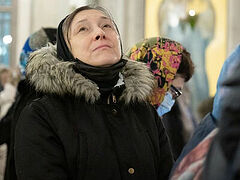Nikita had been dreaming of conquering Everest since childhood. While he was still in high school, his passion had already taken on the appearance of a solid plan; he even put it on paper: to finish school as valedictorian, to enter the Oil and Gas University on a tuition-free basis, to graduate it with honors (if possible), to get a job in the “NGDU” (oil and gas production management company), and to save money for the expedition. A detailed list of must-have expedition equipment hung on the wall of his room for a few years. It included oxygen bottles, mountain gear, spare boots, flashlights, and thermoses… “You have to walk towards your dream day by day, making at least the tiniest of steps,” as the psychology textbooks say. And that’s exactly what Nikita did. Adding the knowledge of English to his technical “must-have” essentials, the young man showed good judgment assuming the expedition he would join would most likely consist of English-speaking people.
You can find a lot of community groups online about the conquest of the highest mountain peak, and this is where you can research the fees charged by the guides, acclimatization life hacks, how to set up rest stops, and other important details. At first, Nikita was simply reading this information, but later he was involved as an active participant of the discussions. What bothered him least of all was how to deal with the harsh climate—as a man who was born in Noyabrsk, grew up in Salekhard, studied in Tyumen, and did an internship in Novy Urengoy, he had no problem with cold weather.
News from the earth’s highest mountain peak appear daily. They sound something like this:
“On May 23, 2013, eighty-year-old Yuichiro Miura from Japan became the oldest person to climb Mount Everest and made it to the summit.
“On May 24, 2014, an Indian girl Poorna Malavath conquered peak. She became the youngest female in the history to reach Mount Everest’s summit.”
There is also tragic news.
“French snowboarder Marco Siffredi was the first to descend the summit of Everest on a snowboard. The descent to the base camp took him two and a half hours. A year later, in the fall, Marco reached the summit of Mount Everest again with the aim of snowboarding down for the second time. After his ascent, the snowboarder began his descent on his own, and was never seen again.”
Every year, about five hundred people attempt to reach the summit, but not everyone is successful.
The way up to the summit in some places resembles a cemetery, but people aren’t buried there, as it is impossible to do this, and their remains simply lie on the slopes
The way up to the summit in some places resembles a cemetery, as people aren’t buried there, for it is simply impossible to do so and their bodies lie on the slopes and the access ways. In some areas, climbers simply step over them. Many of the fallen climbers serve as macabre reference points. The body of an Indian climber named Tsewang Paljor, who died in 1996, marks the height of eight thousand five hundred meters, and he even has own nickname—“Green Boots”— because of his bright green boots.
But this doesn't stop other alpinists gripped by the excitement.
Nikita was thinking hard about what he’d do once he finally got to the summit. Well, besides of course making some trivial selfies. Will he erect a sign, “Nikita from Yamal was here?” Too banal! How about a drawing? Or what about a portrait of some legendary traveler or seafarer? Hmm, none of this sounds quite right… Wait, an icon! Well, that’s a great idea! Let it be his patron saint. Plus, it should be a real, painted icon, on canvas. He had no problem getting the icon: it was painted rather quickly by a graduate of the Tobolsk icon-painting school who, incidentally, asked only for some token amount. But instead of an icon case, he put it in cryoplast that withstands temperatures down to minus seventy Celsius. There was no point in trying to talk him out of it, as he was iron-clad determined to reach the peak. Just think—Nikita, on the highest point on the planet.
Before he began his trip, he printed out the hagiography of St. Niketas the Stylite and tucked it into the pocket of his backpack. He had to learn at least something about the saint, whose icon he will put up on the highest mountain peak of the world!
Vladimir Vysotsky has the following lines:
Whole world lies here in full view,
Happiness abounds and you go numb,
Yet, still, you envy those who follow you,
As their ascent still lies ahead for them.
Nikita was humming this song in anticipation of his return, and how his stories will flow ad infinitum. At this point, we must make a legal disclaimer—northerners tend to have extended vacation time. As for our climber, he combined two vacations and so he was free for two seasons, both spring and summer. In a nutshell, these circumstances were very favorable for the conquest of Everest.
Hindus, Czechs, Americans, Italians, French were all caught up in a common dream
There were nineteen members in their expedition team including the guides, and they wisely decided to spend a few days in the village to get acquainted and adjust to altitude. Hindus, Czechs, Americans, an Italian and a Frenchman were all caught up in a common dream. The topics of the conversation were almost biblical: who helps whom, who safeguards whom and where it is necessary to hold weaker ones steady… Oddly enough, it was in a far-away Tibet where the Siberian native felt the urge to read the New Testament for the first time in his life—and to experience the warmth of the realization that he was Orthodox. Well, at least baptized Orthodox a while back in childhood, but overall, in his adult life, he never attended church—not counting those times when step inside to get warm rather than freeze at a bus stop nearby…
Soon it turned out that the most prepared member in their expedition was this guy from Yamal, but this fact didn’t surprise the foreigners at all. For them, the words “Russian” and “cold” were synonyms. It just naturally happened that Nikita took the others in his charge. If during the first day he would simply give a helping hand opening thermoses, or screwing and unscrewing oxygen tanks, later he’d help others carry their luggage—first a female climber and later everyone else, one by one. It was because he was young and it was no big deal for him, or because he was Russian, or because he was from Siberia…
When the summit of the “Goddess of the Sky”—that's another name of this summit—came into view, the expedition stumbled upon the first corpses of climbers who had died at different times. The Siberian couldn’t recover for a long time from what he had seen, although he had seen similar images online more than once.
When they reached the next rest stop, Nikita took out the pages with the life of his heavenly patron and several times read the lines from the Prophet Isaiah that transformed his saint’s life:
Wash you, make you clean; put away the evil of your doings from before mine eyes; cease to do evil; Learn to do well; seek judgment, relieve the oppressed, judge the fatherless, plead for the widow (Isaiah 1:16-17).
He couldn’t go to sleep for a while and began to doubt whether he should climb Everest… What for? To indulge his vanity?
He quietly went out of his tent, came to the edge of the snow-covered slope and carefully looked around. Such beauty couldn’t happen on its own, it’s pretty obvious, but you have to be extremely careful here, as one awkward step—and you are dead. Who can you rely on here? Who will you ask for help? You obviously don’t want to remain here forever...
Nikita returned to his tent and saw a German doing stretching and gymnastic exercises using some eastern techniques.
“It's cold and scary,” Nikita told him in English.
“We need to get through this,” the German smiled in return.
The next day, everything was just the same: ascent and rest, ascent and rest. The climbers tried not to talk, in order to preserve their strength. They decided to make an exception to this rule on the fiftieth day of their ascent, to lie down and talk a little longer than usual—when it became clear that, oh, what a miracle, all of them, the whole group, are reaching the summit—it was literally a stone’s throw from them. The journey to Everest takes on average about two months.
They crawled out of their tents in high spirits, gathered their strength and headed onward. Nikita got used to the surroundings and tried not to look around, except for in front of him and upwards. Out of the corner of his eye, he noticed that one of the objects he took at first for garbage was moving. He approached to take a closer look. What he saw became clear without any further explanation: The expedition before theirs had left their fellow climber, who collapsed on the way, to die. Overall, it is not an unusual sight on Everest. The man assumed a fetal position and breathed infrequently, apparently not daring to hope.
Nikita gave him his oxygen bottle and massaged his hands. When he saw how the unlucky climber was coming to life and his face began to turn pink, he resolved to take him down.
The rest of his bewildered group met his decision in silence. How? Why?
Even the Sherpa guides did not understand him and refused to return his advance payment. Then they realized that this weird Russian wasn’t asking for anything, but simply wants to save a man’s life and thus declines finishing the ascent. So, they deduced that it might be an unusual hobby of his and pointed to another half-dead climber down below, left by the previous expedition, whom Nikita failed to notice during his climb as he was on another slope.
The rest of the story is about a Russian man who dragged two half-dead men down from Jomolungma. And he brought them down alive! One-by-one. Counting on no one’s help. No human help… But the One to Whom he entrusted himself never abandoned him. Nikita was crying out for help every single second, and help
He attached the icon of St. Niketas the Stylite to one of the buttresses. Once he returned to Russia, he traveled to Valaam, to St. Alexander of Svir Monastery, to the Holy Trinity-St. Sergius Lavra, to Optina… Once back at home, he decided to help out at church, first as Reader and later as Subdeacon, and later he made the decision to receive a theological education. He deleted all his social media as well…





